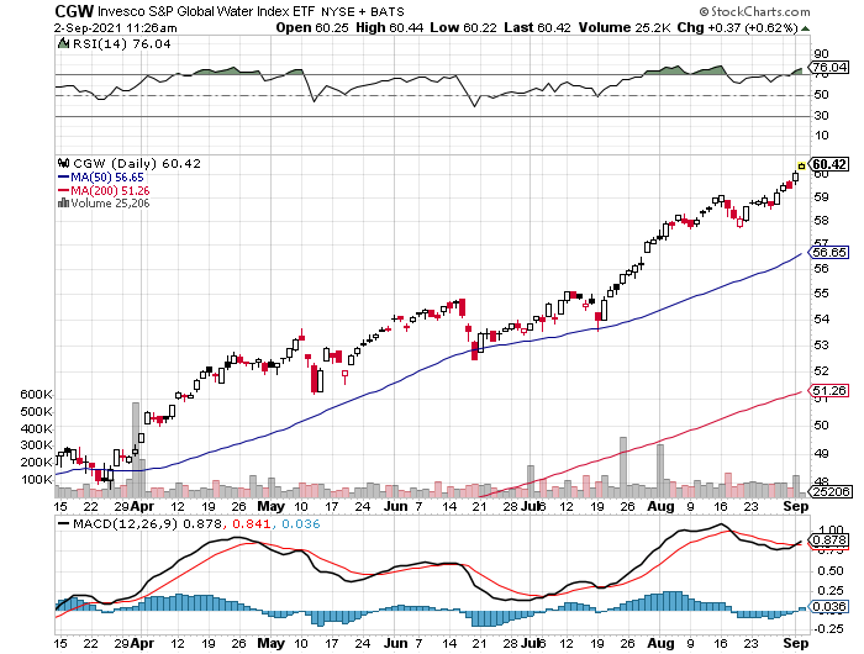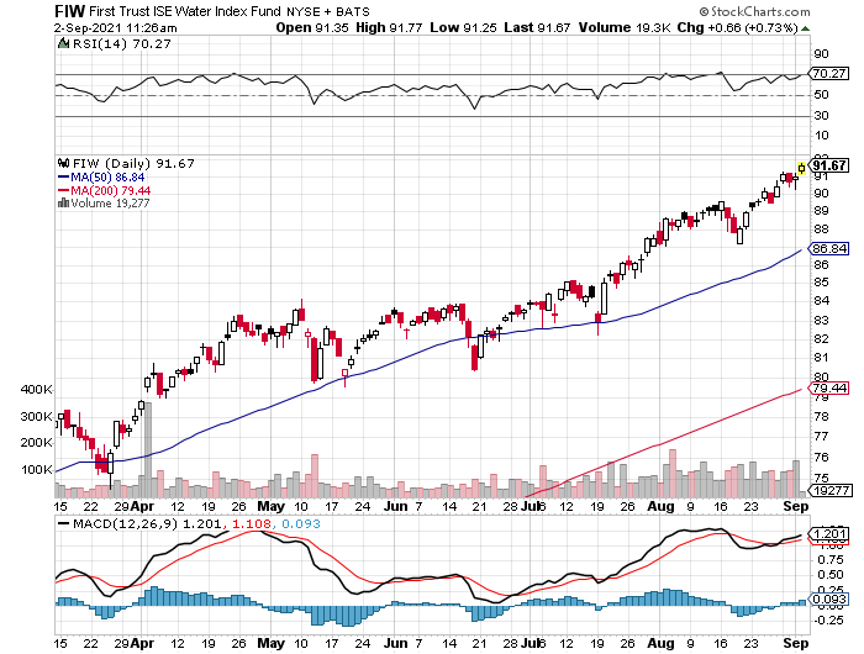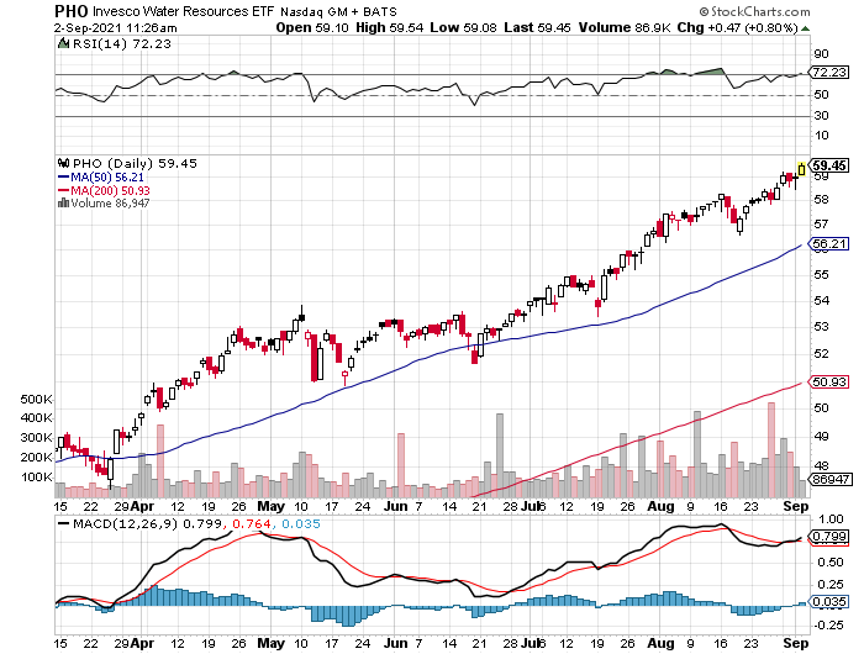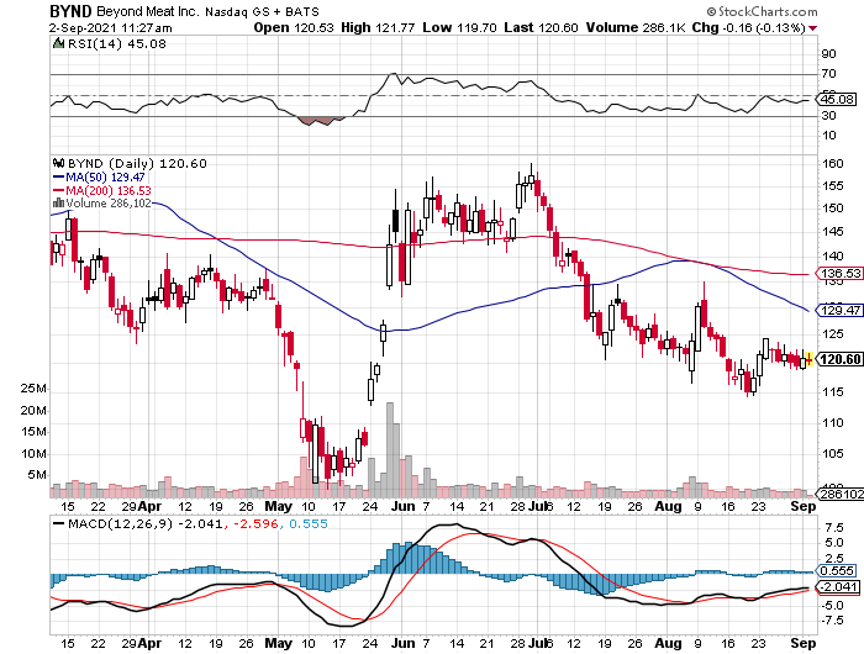| |
Top News
Wallet extinction
Shutterstock In a major expansion of its app-based services, Apple (AAPL) has lined up the first U.S. states to allow drivers to store their licenses within the Apple Wallet app. Arizona and Georgia will be the first states to offer the functionality for their drivers, with Connecticut, Iowa, Kentucky, Maryland, Oklahoma, and Utah next in line for the feature. Residents of those states will be able to store their state-issued identification cards in Apple Wallet should they not have a driver's license.
How does it work? Adding a driver's license to Apple Wallet will be similar to scanning a credit card for online purchases. A person will use their iPhone to scan their actual driver's license or state ID card, and take a picture of themself that will be securely provided to their state for verification. Users will also have to complete a set of facial and head movements during the setup process. Once the person is verified by their state, their ID or driver’s license will be added to their Wallet app.
"The addition is an important step in our vision of replacing the physical wallet with a secure and easy-to-use mobile wallet,” said Jennifer Bailey, Apple’s vice president of Apple Pay and Apple Wallet. The company has also lined up the Transportation Security Administration to support the new ID feature on iPhones. The agency will have specific security checkpoints and lanes at participating airports where travelers use their iPhones to show their ID cards before they get on a plane.
Analyst commentary: Dan Ives, who covers Apple for Wedbush, said that with the company already having more than 1B of its mobile devices in use, adding driver's licenses to Apple Wallet, "is a smart move by Apple, given the digital transformation of consumers in this post-COVID environment." (32 comments)



| | Infrastructure
Ida destruction
Shutterstock Tornado watches and flash flood warnings have been issued for parts of the Tri-State Area as remnants of Hurricane Ida brought in heavy winds and drenching rains that turned major highways into rivers. Tornados were even confirmed in Mullica Hill and Sewell, New Jersey, which are located just outside Philadelphia. Other videos showed water rushing through Newark Liberty International Airport, canceling all flights there, as the tail-end of the storm dumped a month's worth of rain that resulted in the deaths of six people.
Focus on infrastructure: Down in Louisiana, the death toll from Ida has also risen to at least six, though that pales in comparison to the 1,800 people who perished during Katrina. While both storms were of nearly equal strength, Congress has funded a massive $14.5B concrete-and-steel project since 2005, called the Hurricane and Storm Damage Risk Reduction System. The 133-mile-long system of levees, floodwalls, floodgates and pump stations was built by the U.S. Army Corps of Engineers, with the advice of some expert Dutch engineering firms.
Along with sustained damage in the Northeast, Ida could mobilize lawmakers to pass the bipartisan $1T infrastructure bill, which is making its way through Congress. "If we are going to make our country more resilient to natural disasters wherever they are we have to start preparing now," Louisiana Senator Bill Cassidy declared. "We can't look in the rearview mirror and say 'boy I wish we were prepared.'" President Biden is set to survey the destruction in Louisiana on Friday, with a million homes and businesses still without power, as well as 600,000 people without water.
Bill comes due: Ida is estimated to have caused almost $18B in damage that'll be covered by insurers, according to risk-modeling firm Karen Clark & Co. The forecast includes privately insured damage to vehicles, houses and commercial and industrial properties, but does not include boats, offshore properties or losses from the National Flood Insurance Program. Insurers are also up against higher costs more broadly amid a rising consumer price index, with supply shortages, elevated transportation costs and high demand for materials needed to help repair homes. (6 comments)



| | Sponsored By VantagePoint
Who Are The Next Big Stock Movers?
 There is only one way to find out the next big stock picks…
There is only one way to find out the next big stock picks…
And it isn’t sensationalized news, financial gurus, or your brother-in-law who started his own hedge fund.
It’s machine learning.
The same computing and quantifying that would take an expert trader hours and hours of manual analysis, our A.I. algorithms can crunch in less than 60 seconds.
Millions of data points from the global markets come together to reveal what’s going to happen next, with up to an astonishing 87.4% accuracy.
Imagine every single one of your trades having that high of an accuracy rating.
If you’re ready to learn more, click here for a FREE DEMOof the A.I.
| | Healthcare
Opioid settlement
U.S. Bankruptcy Judge Robert Drain has approved a sweeping settlement for Purdue Pharma, the maker of OxyContin, which would resolve thousands of lawsuits from state and local governments, Native American tribes, unions and others alleging the company fueled the opioid epidemic. The plan will reorganize the drugmaker into a new charity-oriented company with a board appointed by public officials that will funnel profits into government-led efforts to prevent and treat addiction. It will also set up a compensation fund that will pay some victims of drugs an expected $3,500 to $48,000 each.
As for the Sacklers: They will lose ownership of Purdue and pay about $4.5B to settle opioid claims, which will shield members of the family with broad legal protections against future civil litigation. That provision was objected to by nine states and a division of the U.S. Justice Department, as well as Washington State Attorney General Bob Ferguson, who dubbed the order "insulting to victims of the opioid epidemic who had no voice in these proceedings." Overall, the settlement would allot $10B to fight the opioid crisis which has killed half a million Americans over the past two decades.
While the Sacklers are quitting the drug business, the deal would largely allow them to preserve the bulk of their fortune, worth an estimated $11B. The Sacklers were also not given immunity from criminal charges, though there haven't been signs that they would face any such suits. "Our family cares deeply that OxyContin was part of the opioid crisis, but it was unintentional," said David Sackler, the grandson of late Purdue co-owner Raymond Sackler. "We don't believe our conduct was illegal in any way, and we want to help."
More settlements: While Purdue was by far the biggest fish to catch, other companies have been also caught in the frying pan. In July, McKesson (MCK), Cardinal Health (CAH) and AmerisourceBergen (ABC) agreed to pay up to $1.2B to resolve claims by New York state and two of its counties over their role in fueling a nationwide opioid epidemic. The same month, Johnson & Johnson (JNJ) agreed to pay $5B as part of an agreement with state attorneys general over its alleged role in the opioid crisis. (2 comments)



| | Covid
Oral trials
Oral drugs that combat COVID-19 are garnering interest from drugmakers and countries alike, as the coronavirus battle moves beyond jabs and syringes. Pfizer (NYSE:PFE) and Merck (NYSE:MRK) have both announced the start of trials to test oral antiviral medications that target the disease. The race to develop an easy-to-administer treatment comes amid growing interest in the market for coronavirus therapeutics as the threat of COVID-19 sticks around for the foreseeable future.
Pfizer's latest mid-to-late-stage trial will enroll 1,140 non-hospitalized adults diagnosed with coronavirus infection who are not at risk of severe illness. They'll be given Pfizer's pill, known as PF-07321332, as well as a low dose of ritonavir, which is widely used in combination with HIV treatments. Merck's trial will study the experimental drug molnupiravir for the prevention of COVID-19 among adults who live in the same household as a person with a symptomatic coronavirus infection.
Over in Israel: The country announced in July that it would be the first in the world to test an oral COVID-19 vaccine developed by Oramed Pharmaceuticals (NASDAQ:ORMP). The first trial will involve 24 unvaccinated volunteers, each taking one or two pills, before moving on to larger Phase 3 trials if successful. The vaccine should be "much more resistant to COVID-19 variants," according to Oramed CEO Nadav Kidron, since it trains the immune system against three viral proteins instead of the single protein targeted by Pfizer and Moderna's (NASDAQ:MRNA) shots.
Elsewhere: The World Health Organization is monitoringa new coronavirus variant named "mu," which, according to the agency, has the potential to escape the immunity gained from COVID-19 vaccines or natural infection. On August 30, WHO has added the "mu" variant, also known as B.1.621 among scientists, to the global agency’s list of variants "of interest." The strain was first identified in Colombia, but has since been detected in at least 39 countries. (9 comments)



| | Today's Markets
In Asia, Japan +0.3%. Hong Kong +0.2%. China +0.8%. India +0.9%.
In Europe, at midday, London flat. Paris +0.1%. Frankfurt flat.
Futures at 6:20, Dow +0.2%. S&P +0.2%. Nasdaq +0.2%. Crude +0.3% at $68.79. Gold +0.2% at $1819.40. Bitcoin +4.6% at $49817.
Ten-year Treasury Yield -2 bps to 1.28%
Today's Economic Calendar
Auto Sales
7:30 Challenger Job-Cut Report
8:30 Initial Jobless Claims
8:30 Productivity and Costs
8:30 Goods and Services Trade
10:00 Factory Orders
10:30 EIA Natural Gas Inventory
4:30 PM Fed Balance Sheet
Companies reporting earnings today »
| |

What else is happening...
OPEC+ agrees to continue gradual monthly oil production increases.
Latest crackdown... China summons 11 ride-hailing firms over misconduct.
ChargePoint (NYSE:CHPT) climbs 14% AH after boosting revenue outlook.
Moderna (NASDAQ:MRNA) seeks FDA authorization for COVID booster shot.
Investment garbage? Bill Gross says bonds are trash now, joining cash.
Report: Twitter (NYSE:TWTR) testing ability for users to send tips with Bitcoin.
Amazon (NASDAQ:AMZN) adding 55,000 tech jobs under new CEO Andy Jassy.
Tesla (NASDAQ:TSLA) hears from regulators with questions on Autopilot.
Google's (NASDAQ:GOOGL) YouTube Music hits 50M paid subscribers - FT.
Ant Group reportedly teams with Beijing-backed investors to rescue IPO.
| | Seeking More
|
| | �
| | | Seeking Alpha’s Wall Street Breakfast Podcast
| |
| |
| |
|
|






























